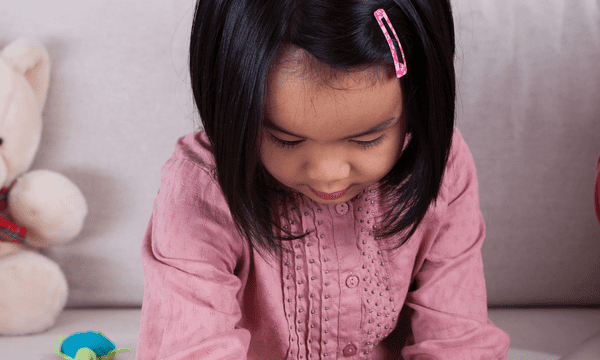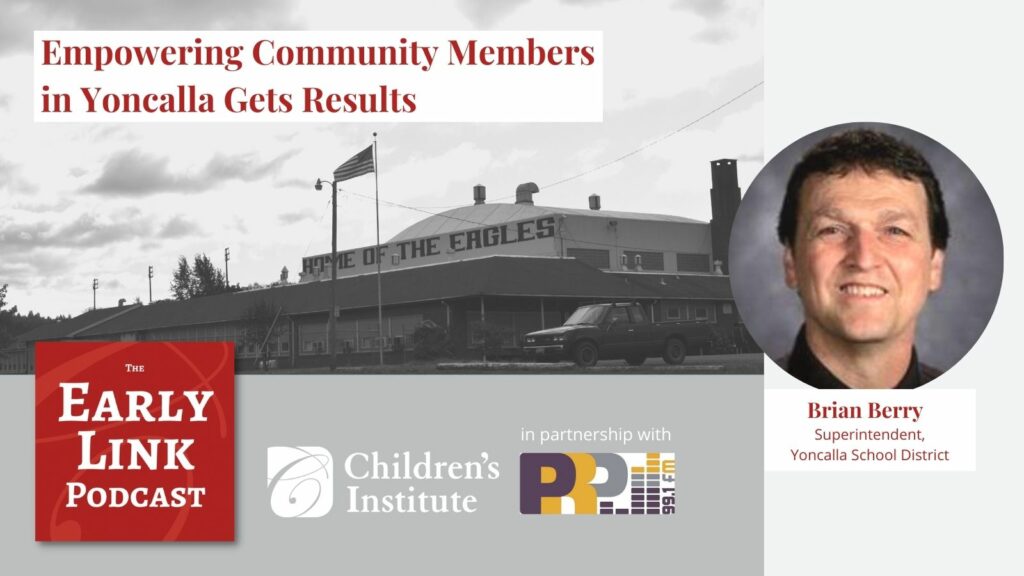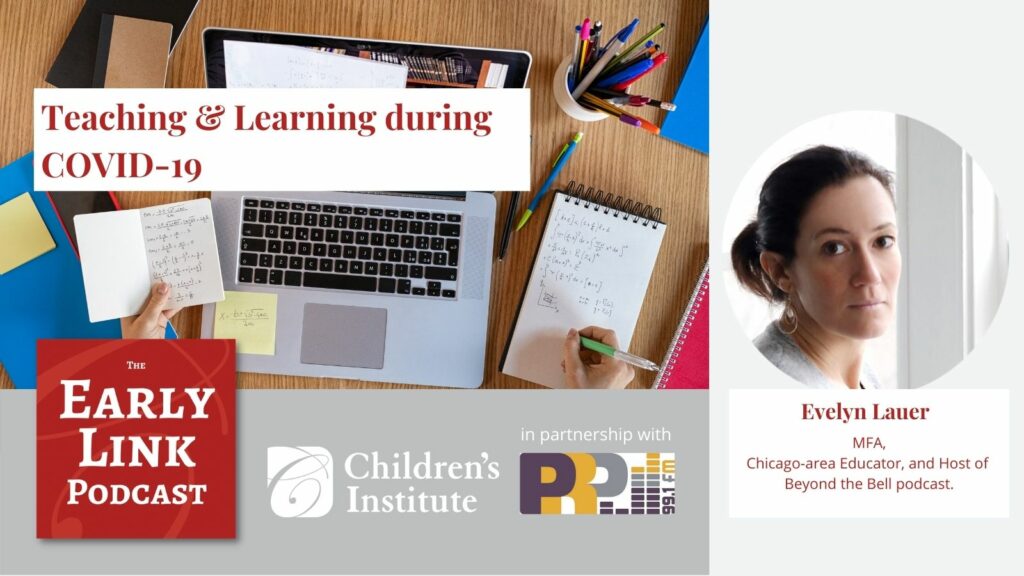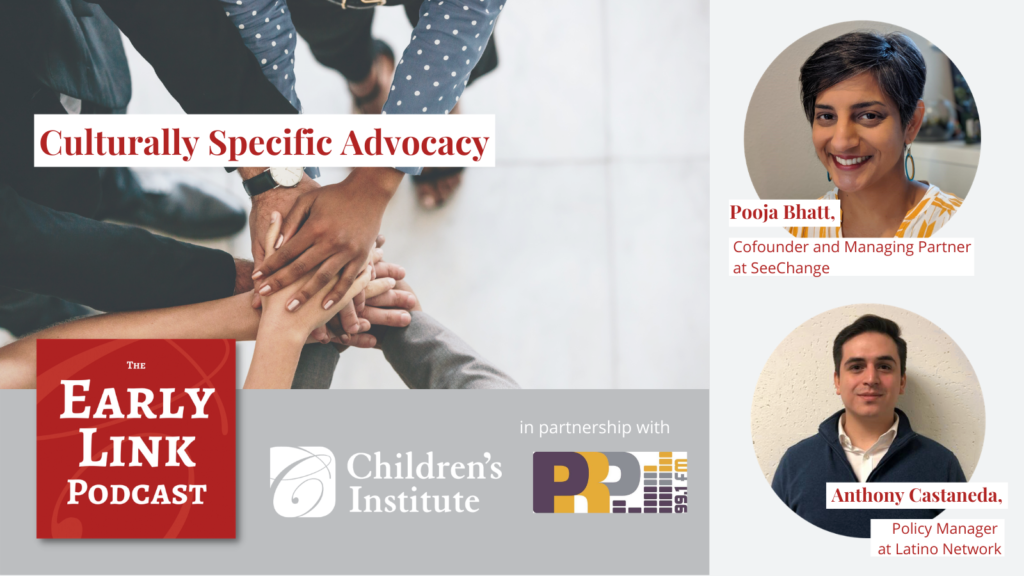Who is The Early Childhood Coalition?
Oregon’s Early Childhood Coalition is a partnership of more than 50 state and national organizations who advocate at the state legislature to improve outcomes for Oregon’s youngest children and families.
Our Vision Centers Equity
The Early Childhood Coalition envisions an Oregon where all children experience high-quality early learning and care that is culturally responsive, welcoming, and accessible; where child and family experience directs policy and investment toward creating and sustaining a culture of abundance, care, and play.
The Early Childhood Coalition believes racism is built into all systems, including early childhood; we know early childhood is a critical window in which to advance racial equity. When we center racial equity and intentionally prioritize those at the outermost margins, early childhood programs and services can improve outcomes for all children and reduce disparities by race/ethnicity, income, geography, disability, language, immigrant and refugee status, houselessness and foster care.
With strong partnerships and visionary leadership, we can work toward a racially just, child-centered early learning and care system that prioritizes every child’s diverse strengths and needs, starting at birth. We invite you to join us, learn more about our collective goals, share our message with your networks, and work with us to remind lawmakers why early childhood matters!
Have a question or need more information? Please email Malea Miller at malea@childinst.org.
2025 Legislative Agenda
Early Education and Child Care
Employment Related Daycare (ERDC)
Serve the 8,500+ families on the ERDC waitlist and the 4,000 ERDC families without a provider.
Up to $500 million
Senate Bill 5514
Child Care Navigation
Improve the support for families in ERDC to find a child care provider.
$15 million
Child Care Provider Retention and Recognition Payment Program and Apprenticeship Funding
This bill would create the Child Care Provider Payment Program and support early childhood apprenticeship programs.
Budget ask TBD
House Bill 3008
Invest in College of Education Programs and Campus Child Care Sites
This bill would invest in on-campus child care programs to provide work sites for students and expand child care.
$20 million
HB 3011
Child and Adult Care Food Program
Ensure children receive nutritious meals, stabilize child care providers, and maintain funding for home based providers.
$4.5 Million
House Bill 3201
Senate Bill 5515
Inclusive Child Care Zoning
Create by-right zoning for child care and provide best practices & guidance for cities and counties.
No budget ask
House Bill 3560
Develop a Best Practices Guide for Child Care Zoning
This bill would direct the Department of Land Conservation and Development (DLCD) develop best practice guidance for supporting child care.
~$250,000
House Bill 3496
Birth-5 Early Literacy Fund
Secure expanded funding for early literacy, including increasing funding for Reach Out and Read.
$25 million above current service level
Senate Bill 5514
EI/ECSE Funding
Restore and improve services for children with disabilities and delays eligible for Early Intervention/Early Childhood Special Education.
$24 million above current service level
SB 5515
EI/ECSE Study Bill
Create a workgroup to modernize EI/ECSE Adequate Service Level calculation
~$250,000
HB 2682
Maternal-Child Health
Doulas and Lactation Counselors
This bill would require public and private insurance coverage of birth and postpartum doulas and lactation consultants, and would create a fund to support training for the perinatal workforce.
$6 million + Medicaid match
Senate Bill 692
Perinatal Workforce Taskforce
This bill would create a taskforce to make recommendations for diversifying ther perinatal workforce.
~$250,000
Senate Bill 693
Elevate Children in CCO 3.0
Ensure CCOs prioritize the first 1,000 days, when health and development set a foundation for future well-being.
Budget ask TBD
Senate Bill 695
Social Emotional Health Workforce
Expand behavioral health capacity to serve young children, 0-5, and parents.
$5 million per year
OHA or DAS Budget Bill
Supporting Families
Relief Nurseries
Relief Nurseries request $4.9 million above the Governor’s Recommended Budget to sustain services for over 2,300 children and families, and reach up to 300 more children with vital therapeutic classroom and home visiting services.
$4.9 million above current service level
Senate Bill 5514
Healthy Families Oregon
Expand and sustain home visiting services across the state.
$3 million
Senate Bill 420
Senate Bill 5514
Nurse Family Partnership
Nurse Family Partnership empowers first time parents experiencing economic and social barriers by pairing them with a nurse home visitor who works alongside them and their children, from prenatal to age two.
This investment is to expand and sustain home visiting services across Oregon.
$6.32 million
SB 1033
Upstream Pilots
Continue to provide the non-federal Medicaid match funding needed to provide proven NFP services.
$10 million
DELC or DAS Budget Bill
2024 Legislative Agenda
Support Economic Well-Being of Children and Families
Employment Related Daycare (ERDC)
Oregon instituted a waitlist for the ERDC program on November 4, 2023. In order for families to go to work and school, and support children to thrive, we must end the waitlist with an investment in child care.
Funding ask for 2024 to be determined. The Department of Early Learning and Care’s (DELC) Policy Option Package for 2023 was $250 million.
CHIPS Childcare for Construction Workforce
The Federal CHIPS Act provides Oregon CHIP manufacturers millions of dollars in subsidies to build the infrastructure they need to grow this sector. These investments are expected to create 10,000 new jobs and estimated $500 million in state and local tax revenues over a five-year period. This creates new demand for child care to support this workforce, however Oregon’s child care supply is far from meeting current workforce demands. This is why the CHIPS Act requires applicants to provide child care access and supply plans as part of their applications. While some businesses may be able meet part of this requirement, none are poised to meet all the federal demands. Leveraging existing state child care systems will ensure CHIPS applicants will meet application requirements.
$5 million
Child Care Infrastructure Fund
In 2023, the Oregon Legislature passed HB 3005 and provided $50 million in lottery bond funding for child care facilities. However, licensed home-based and small center child care providers will be better served by a general fund investment in facilities infrastructure.
$5 million
Provide Educational Opportunity
Early Literacy Success
Distribute funding for the Birth through Five Literacy Plan in alignment with the Department of Early Learning & Care (DELC) recommendation.
$10 million
Early Intervention/Early Childhood Special Education
Special Education services for children 0-5 increase school readiness, reduce later costs, and support families to foster life-long success. The program was funded anticipating no growth in caseloads. A $22 million investment would support 5% caseload growth.
$22 million
Stabilize Services That Support Family Well-Being
Relief Nurseries
Sustain Relief Nursery operations, continuing to prevent unnecessary foster care for 2,300 children and their families in 38 communities across Oregon.
$2.7 million
Healthy Families Oregon
Healthy Families promotes child well-being and prevents neglect and abuse through in-home support. This investment will advance pay parity for staff to stabilize this workforce, allowing these proven services to reach more children and families.
$2.7 million
Nurse Family Partnership
Nurse Family Partnership empowers first time parents experiencing economic and social barriers by pairing them with a nurse home visitor who works alongside them and their children, from prenatal to age two. This investment will ensure greater stability for services for families.
$3.16 million
Early Learning Educator Scholarship Program
Higher education is out of reach for many in early childhood. Yet access to education can increase outcomes for children and economic opportunity for providers. In 2023, the Oregon Legislature passed HB 3561 to expand this program, but failed to allocate funds to implement.
$2.5 million
Early Childhood Coalition Tools & Resources
Links to resources and downloadable content.
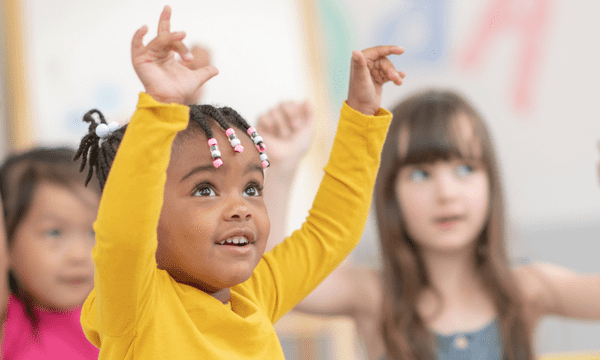
Oregon’s Early Childhood Programs Explained (PDF)
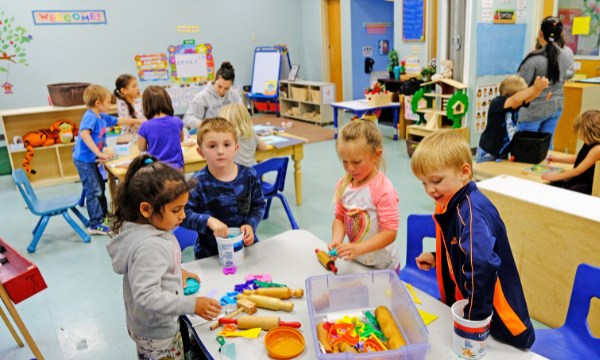
Expanding Early Childhood Facilities (PDF)
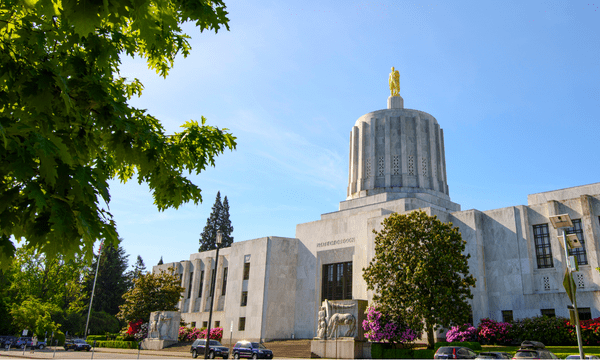
For Legislators & Policymakers
Our Values
As a coalition, we are committed to moving all early childhood investments toward greater cultural relevance and responsiveness. In order to achieve this, our decisions and actions will be centered in core values of justice, accountability, self-determination, humanity, and collaboration.
Justice
We work towards systems level transformation to remove barriers and build political power for children, families, and communities most harmed by systemic injustice.
Accountability
From policy development through implementation, we are answerable to young children, families, and communities. As we continue to learn from historic injustice and take corrective action, we will also acknowledge and learn from our own missteps and take action to repair harm.
Self-determination
Solutions must be built with families and communities to work for them. We commit ourselves to policy building and decision-making led by and for Black, Indigenous, people of color, and other families and community partners historically excluded from policy and budget decisions.
Humanity
We perceive our well-being and the well-being of the children, families, and communities we advocate with as essentially connected. We ground our work in the belief that happy, healthy development is a collective social responsibility and a fundamental right of all children.
Collaboration
We pursue justice for Oregon’s youngest children and families through non-transactional, long-term, and evolving relationship and trust-building. We are committed to equipping parents and partners with the support they need to drive change on their own terms.
Coalition Partners
Adelante Mujeres
American Federation of State, County, and Municipal Employees
American Heart Association
Child Care Resources
Community Action
Consejo Hispano
Doulas Latinas
Early Learning Council
Early Learning Central Oregon
Early Learning Clackamas
Early Learning Council
Early Learning Multnomah
Early Literary Success Alliance
Eastern Oregon Community Based Service Hub
Education Explorers
Family Forward Oregon
Fight Crime: Invest in Kids
Foundations for a Better Oregon
Friendly House
Health Share
Home Forward
Inclusive Partners
Immigrant & Refugee Community Organization
Latino Network
Marion & Polk Early Learning, Inc.
Metropolitan Family Services
Multnomah County
Native American Youth and Family Center
Northwest Early Learning Hub
Nurse-Family Partnership
Oregon Association for the Education of Young Children
Oregon Alliance for Early Intervention
Oregon Association of Relief Nurseries
Oregon Child Abuse Solutions
Oregon Coalition of Local Health Officials
Oregon Community Foundation
Oregon Council on Developmental Disabilities
Oregon Education Association
Oregon Head Start Association
Oregon Montessori Association
Oregon Pediatric Society
Oregon Public Health Institute
Our Children Oregon
Prevent Child Abuse Oregon
Reach Out and Read
ReadyNation: Council for a Strong America
Social Venture Partners Portland
South-Central Early Learning Hub
United Way of the Columbia-Willamette
Yamhill Community Care
Latest on Policy from Children’s Institute
Empowering Community Members in Yoncalla Gets Results
On this episode of The Early Link Podcast, host Rafael Otto talks with Brian Berry, the superintendent at the Yoncalla School District, about how the district is empowering community members to become local educators, and shares the ways in which this strategy is...
Teaching & Learning During COVID-19
On this episode of The Early Link Podcast, host Rafael Otto speaks with podcaster and educator Evelyn Lauer about the struggles of teaching during a global pandemic. Guest: Evelyn Lauer has taught high school English in the Chicago area for 20 years. She is the...
Culturally Specific Advocacy
In this episode of The Early Link Podcast, host Rafael Otto talks with Pooja Bhatt and Anthony Castaneda about the value of culturally specific early childhood advocacy and how their organizations are approaching this important work. Guests: Pooja Bhatt is the...

